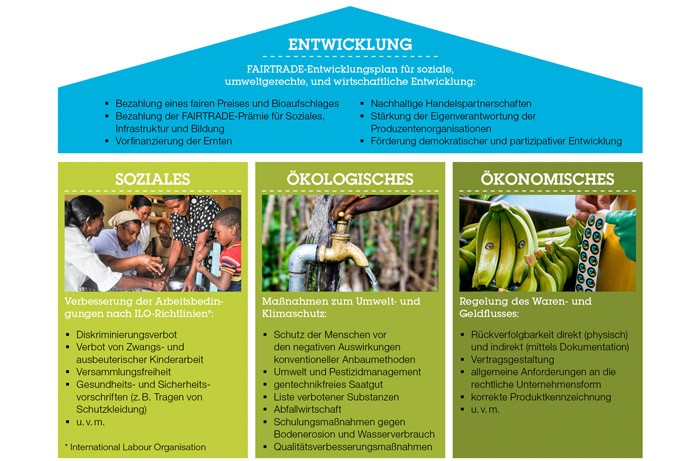Fairtrade International
Post on: 16 Март, 2015 No Comment

Not all trade is fair! Farmers and workers at the beginning of the chain don’t always get a fair share of the benefits of trade. Fairtrade enables consumers to put this right.
Introducing Fairtrade
What is the difference between Fair Trade and Fairtrade? What is a surveillance audit? – Find out with the Fair Trade Glossary (PDF), a listing of all fair trade terminology created by Fairtrade International, FLOCERT and World Fair Trade Organization (WFTO).
Fairtrade is an alternative approach to conventional trade and is based on a partnership between producers and consumers. When farmers can sell on Fairtrade terms, it provides them with a better deal and improved terms of trade. This allows them the opportunity to improve their lives and plan for their future. Fairtrade offers consumers a powerful way to reduce poverty through their every day shopping.
When a product carries the FAIRTRADE Mark it means the producers and traders have met Fairtrade Standards. The Fairtrade Standards are designed to address the imbalance of power in trading relationships, unstable markets and the injustices of conventional trade.
The Charter of Fair Trade Principles
In 2009, Fairtrade International (FLO) along with the World Fair Trade Organization adopted the Charter of Fair Trade Principles, which provides a single international reference point for Fair Trade. The charter includes our common vision, definition of Fair Trade, core principles and the distinct approaches to Fair Trade. Fairtrade International endorses the definition of Fair Trade and adheres to the Principles.
You can download the principles in multiple languages below and read an introductory letter from Ian Bretman, Vice Chair of the Fairtrade International’s Board of Directors.
The Standards
There are distinct sets of Fairtrade Standards. which acknowledge different types of producers. One set of standards applies to smallholders that are working together in cooperatives or other organizations with a democratic structure. The other set applies to workers, whose employers pay decent wages, guarantee the right to join trade unions, ensure health and safety standards and provide adequate housing where relevant.
Fairtrade Standards also cover terms of trade. Most products have a set Fairtrade Minimum Price, which is the minimum that must be paid to the producers. In addition producers get an additional sum, the Fairtrade Premium, to invest in their communities or businesses.
Fairtrade Minimum Prices
The minimum price paid to Fairtrade producers is determined by the Fairtrade Standards and Pricing Unit. It applies to most Fairtrade certified products. This price aims to ensure that producers can cover their average costs of sustainable production. It acts as a safety net for farmers at times when world markets fall below a sustainable level.
When the market price is higher than the Fairtrade Minimum Price, the buyer must pay the higher price. Producers and traders can also negotiate higher prices on the basis of quality and other attributes.
The Fairtrade Premium
In addition to the price paid for the product, there is an additional sum of money, called the Fairtrade Premium, that farmers receive for products sold on Fairtrade terms. This money goes into a communal fund for workers and farmers to use to improve their social, economic and environmental conditions.
The use of this additional income is decided upon democratically by producers within the farmers’ organization, or by a workers’ committee on a plantation. The Premium is invested in education and healthcare, farm improvements to increase yield and quality, or processing facilities to increase income.
As many projects funded by the Premium are communal, the broader community, outside the producer organization often benefits from Fairtrade.
Fairtrade Products
There are now thousands of products that carry the FAIRTRADE Mark. Fairtrade Standards exist for food products ranging from tea and coffee to fresh fruits and nuts. There are also standards for non-food products such as flowers and plants, sports balls and seed cotton.














